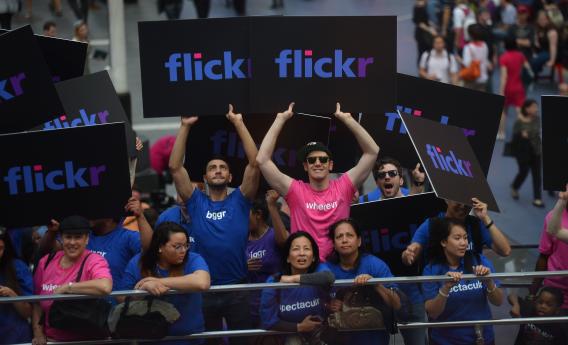A lot of the narrative around Yahoo’s acquisition of Tumblr has taken as its backdrop the narrative that Yahoo bought Flickr and blew a huge opportunity.
There is certainly some truth to that narrative, but I also want to push back a bit. In particular, a number of people suggested to me that the success of Instagram shows that Yahoo really blew it with Flickr. They had the lead, they now have a cool Flickr mobile app, and had they not fallen behind the Instagram curve they could be having all of Instagram’s success. But the question here is what success? Now don’t get me wrong. I say hip hip hooray to Instagram’s founders. Starting a company that makes a product people love and has no revenue model and then selling that company for $1 billion to a larger tech company and then letting the new owner take the fall when it’s inevitably either “ruined” or killed is the Silicon Valley dream. I hail anyone who’s able to pull it off as a Hero of Consumer Surplus.
But Yahoo was not a scrappy startup. Taking its existing photo service, Flickr, and adding to it a wildly popular but revenue-free mobile app would not have accomplished anything for the company. That’s why they didn’t do it.
Before Instagram really took off, some of my friends who were more into photography were using Hipstamic a cool paid app that had social features and photo filters that were used to create award-winning pictures. This was a successful product in its day, but it ultimately proved less popular than a similar product that you could use for free (surprise!). Hipstamic the company is still out there, pivoting to new products and it’s a good team and I wish them well. But looking back, it’s clear that Hipstamic made a mistake. They were a small startup, so the “burn some VC money growing a free service as fast as possible and then sell it to make the revenue issue someone else’s problem” would have worked for them. But how could it have worked for Yahoo? It’s like a funhouse mirror version of the innovator’s dilemma. Competing against cheap, fast startups is hard for any entrenched incumbent, but it’s downright impossible when the startup is able to operate with total disregard for revenue. Then from the Facebook viewpoint, they bought Instagram right before an IPO that made Mark Zuckerberg a lot of money and since the IPO the stock is down 30 percent while the broad market has soared. Despite being publicly traded, Facebook is wholly under Zuckerberg’s personal control and perhaps he simply doesn’t care (in fact, good for him for not caring). But Yahoo wasn’t a controlled company like that. It can’t just launch high-profile failed business ventures and shrug the failure off because the service is still cool.
